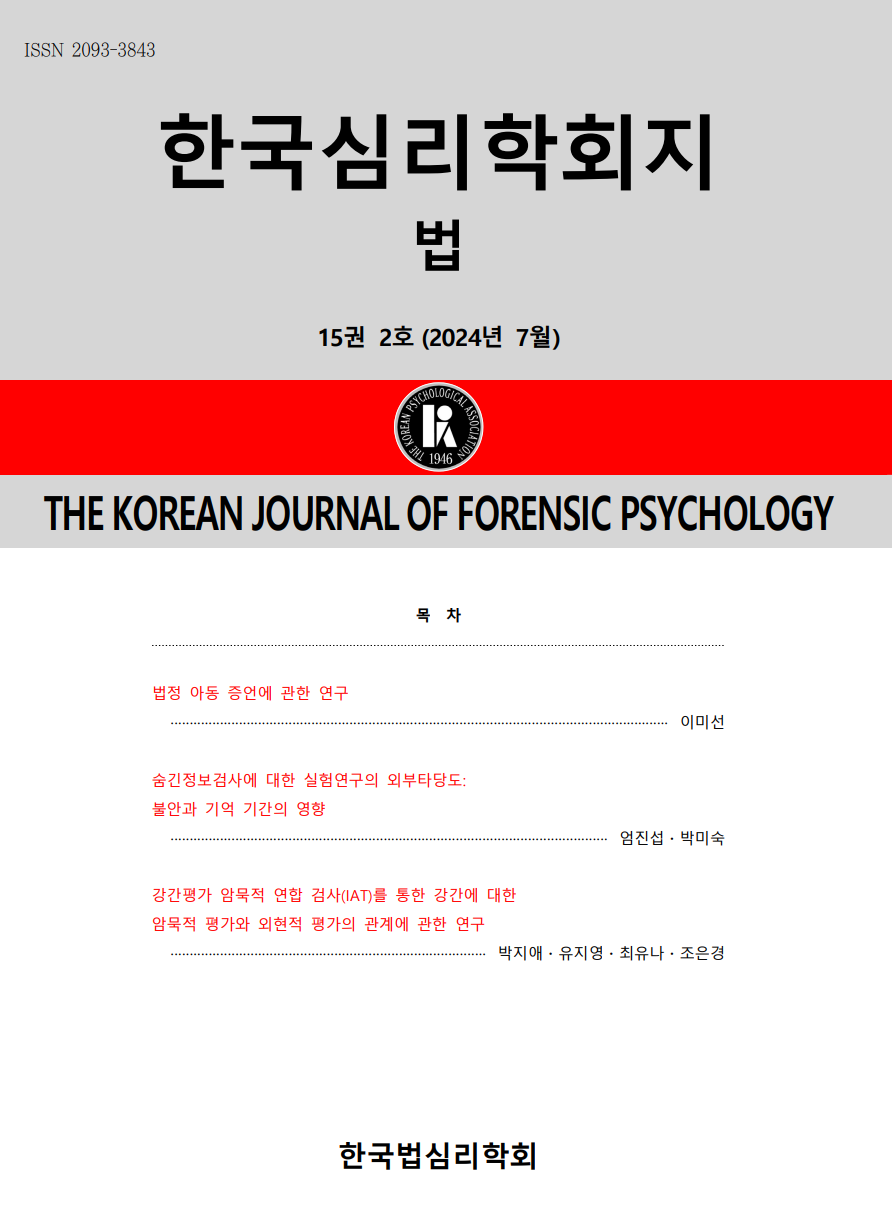open access
메뉴
open access
메뉴 ISSN : 2093-3843
ISSN : 2093-3843
The motivation of underlying gambling is a strong factor to explain gambling behavior. The aim of this study is to examine the extent to which the relationship between depression and gambling bahavior is explained by aversion to negative affect depending on the level of antisocial disposition. The participants were 239 university students and answered the Korean Diagnostic Test for Personality Disorders(K-PDT), Korean Depression Scale(KDS), the Korean version of Canadian Problem Gambling Index 2011 (KCPGI-2011), and Gambling Motives. The results indicated that aversion to negative affect as a motivation for gambling explained the relationship between depression and gambling behavior among the individuals with relatively high antisocial disposition]. But the aversion to negative affect did not explain the relationship among the individuals with relatively low antisocial disposition. Implications of the findings are discussed with respect to the gambling behavior of individuals with or without antisocial personality.
In a criminal trial, the defendant is found guilty only when the prosecution proves the guilt beyond a reasonable doubt. Current study aims to understand how judges form the belief that a defendant is guilty beyond a reasonable doubt. In order to understand the factors influencing the formation of the belief in the defendant's guilt and the ways in which those factors are applied to the case, the rulings of 28 criminal cases for which‘beyond a reasonable doubt' standard was the primary reason for reversal of the original judgment were subjected to content analysis. Several factors that tend to be influenced by the subjectivity of the judge caused the discrepancy between the courts' decisions: The veracity of statements made by the defendant or the victim, the probative value and admissibility of evidence, and the scientific evidence presented by an expert. It was also found that the judges considered the consistency of those factors with other evidence comprehensively so as to make decisions whether the overall evidence in the case in hand would be strong enough to prove the defendant's guilt beyond a reasonable doubt. In discussion, the remedies, which would decrease the inconsistency between judges' assessments of the factors that identified in this study so that minimize the impact of judge's subjectivity in applying the standard to the cases were proposed.
The purpose of this study is to verify the reliability and validity of Korean version of the QACSO, (Questionnaire of Attitudes Consistent with Sexual Offending; Lindsay, Whitefield, Carson, Broxholme, Steptoe, 2004) which was developed to measure the attitudes consistent with sexual offending of sex offenders with intellectual disability (ID) and to select A items with the most acceptable statistical properties and significantly discriminate sex offenders with ID from the other groups. Total of 223 participants including 32 sex offenders with ID in jail or community welfare center, 88 sex offenders under probation without ID, 31 non-offenders with ID in community welfare center, and 72 undergraduate students were selected as the subjects of this study. Study results are as following. Through item analysis considering the internal consistency, item-total correlations, and the mean score for each group, 58 questions were suggested to be ‘finally selected questionnaires’ that correspond to the A items. 58 questions consist of 53 questions for clinical subscales and 5 questions for ‘social desirability’ scale. 53 questions for seven clinical subscales (‘rape and attitudes to women’, ‘voyeurism’, ‘exhibitionism’, ‘stalking and sexual harassment’, ‘dating abuse’, ‘homosexual assault’ and ‘offences against children’) demonstrated high internal consistency (Cronbach’s α=.90) and item-total correlations (r=.38-.44). Also, ‘finally selected questionnaires (58 questions)’ had a good convergent, discriminant and criterion validity and it significantly discriminated sex offenders with ID from sex offender group without ID, non-offenders with ID, and non-offenders without ID. These results indicate that Korean version of the QACSO has adequate reliability and validity.